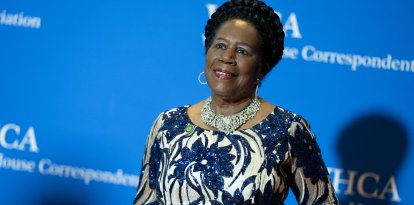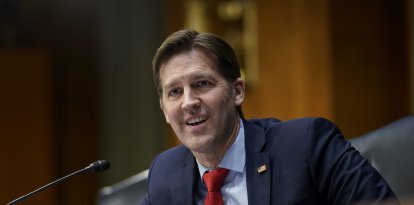Americans are becoming less patriotic and more interested in money
Adults and Republicans stand up for their country more while young people and Democrats care more about their income.

(Public Domain Pictures - Jean Beaufort)
Support for traditional American values, such as patriotism, has been steadily declining since 1998 in the face of the growing importance of money. This is the first conclusion to emerge from a survey carried out by The Wall Street Journal which emphasizes that it is young people and those who declare themselves Democrats who are most interested in economic issues, while adults and those who consider themselves Republicans are the ones who remain most attached to love of country and other traditional American values. Bill McInturff, one of the sociologists who conducted the survey, told WSJ that "these differences are so dramatic, it paints a new and surprising portrait of a changing America." and suggests that "perhaps the toll of our political division, Covid and the lowest economic confidence in decades is having a startling effect on our core values." The publication stresses that "a number of events have shaken and in some ways fractured the nation since the Journal first asked about unifying values," including the Sept. 11 attacks, the 2008 financial crisis and the presidency of Donald Trump.
Patriotism
Only 38% of respondents say patriotism is very important to them, compared to 61% who considered it so in 2019 and 70% in 2018. Patriotism is believed to be "somewhat important" to 35% while 27% said that it is somewhat important, and 16% responding that it is not at all important. But 59% of Republican voters do consider love of country to be important, while only 23% of Democrats and 29% of Independents consider it very important. Only 23% of those under 30 believe patriotism is very important compared to 59% of those older than 30 who rate it as "very important". According to the survey, 21% of Americans believe their country is the best in the world, 50% believe it is one of the best along with others, and 27% believe there are other countries better than the United States.
Religion and community
The Journal survey, along with others, highlights the devaluation of religion in a country that continues to prioritize self-gratification and secular progressivism. While 49% of citizens claim to believe in God and are absolutely certain that God exists, only 39% consider religion to be important to them. In 1998, 52% believed it was important, and 48% believed so in 2019 which continued to decline until reaching its lowest point this year. In general, Americans perceive that the religious importance factor is declining and that it is becoming less and less important to educate children in religious values.
Religion and community usually go hand in hand, so a decline in confidence in one of these concepts is also reflected in the other. In 1998, the percentage of citizens participating in community activities amounted to 47%; it rose to 62% in 2019, but plummets to 27% in this year's WSJ survey. In this section, Democrats (32%) seem to be ahead of Republicans (25%) and Independents (23%).
Children
Respondents do not rate having children as "very important," a finding that corroborates the steady decline in the U.S. birth rate over decades. Having children is very important to 30% of those who responded, but in 2019 it was 43% and in 1998 it was 59%. Thirty-eight percent of Republicans believe it is important to have children, compared to 23% of Democrats and 20% of Independents. The fertility rate has fallen to 1.64 children per woman, the lowest in U.S. history.
Money
Money is the only item in this survey that has gained in importance among citizens. Forty-three percent say money is very important, up from only 31% in 1998. In this aspect, Democrats and Republicans (45%) agree, along with only 36% of Independents. But citizens are not very happy with the state of their finances. Forty-four percent believe their financial situation is worse than they expected at this point in their lives; 39% believe their finances are on par with what they expected and only 17% believe they are living better than they imagined for their age.

























